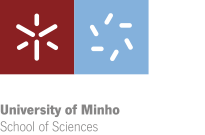Candidates should provide the following documents in one of the following languages: Portuguese, English, Spanish, or French:
1. Required documents
• Certificates of qualifications indicating the degrees held by the applicant and the final grade of the academic degree;
• Certificate of disciplines of the study programme completed by the applicant as well as the grades awarded and the respective credits;
• Curriculum Vitae;
• One motivation letter stating the scientific objectives of the candidate for joining the MAP-PDMA programme;
•
Two recommendation letters by recognized professors or researchers in the area of Mathematics, sent directly by them by email to
map.pdma@math.uminho.pt, with the subject PDMA_NameSurnameCandidate.
2. Optional documents
• Photocopy of Identity Card/Citizen Card or Passport;
• Any other document the candidate may consider relevant to the assessment of the scientific and professional merit mentioned in the Curriculum Vitae. All the information indicated in the application, which is relevant to the evaluation of the candidate’s curriculum, must be supported by the presentation of the respective certificates.
If you wish to apply for more than one doctoral programme, you must complete the procedure for each programme separately, with a non-refundable application fee of 40 euros per course which can be paid by credit card.
The documents submitted in the application is a responsibility of the candidate, who must submit the originals of documents whenever requested. In case of doubt about the elements relevant to the application or their authenticity, UMinho may request additional information from the applicant or their confirmation.
Number of vacancies
Total number of vacancies on the academic year 2025/2026: 25
Vacancies for national candidates or equivalent: 20
Vacancies for international candidates: 5
Ranking criteria
The ranking of candidates will be based on the ranking resulting from the application of the following items:
a) Curriculum Vitae, including the classifications in previous degrees (60%);
b) Recommendation Letters (20%)
c) Motivation Letter (20%)
An individual interview, possibly using a video conference system, may be required after applying the previous criteria.
Calendar
Courses starting in the 1st semester
Single Phase: from July 01 until August 26, 2025
Publication of the selection and ranking of candidates: by 09 September, 2025
Deadline for complaints: by 15 September, 2025
Decision on complaints: by 16 September, 2025
Registration and enrolment: from September 17 to 19, 2025


